Fashion show shines a light on overconsumption

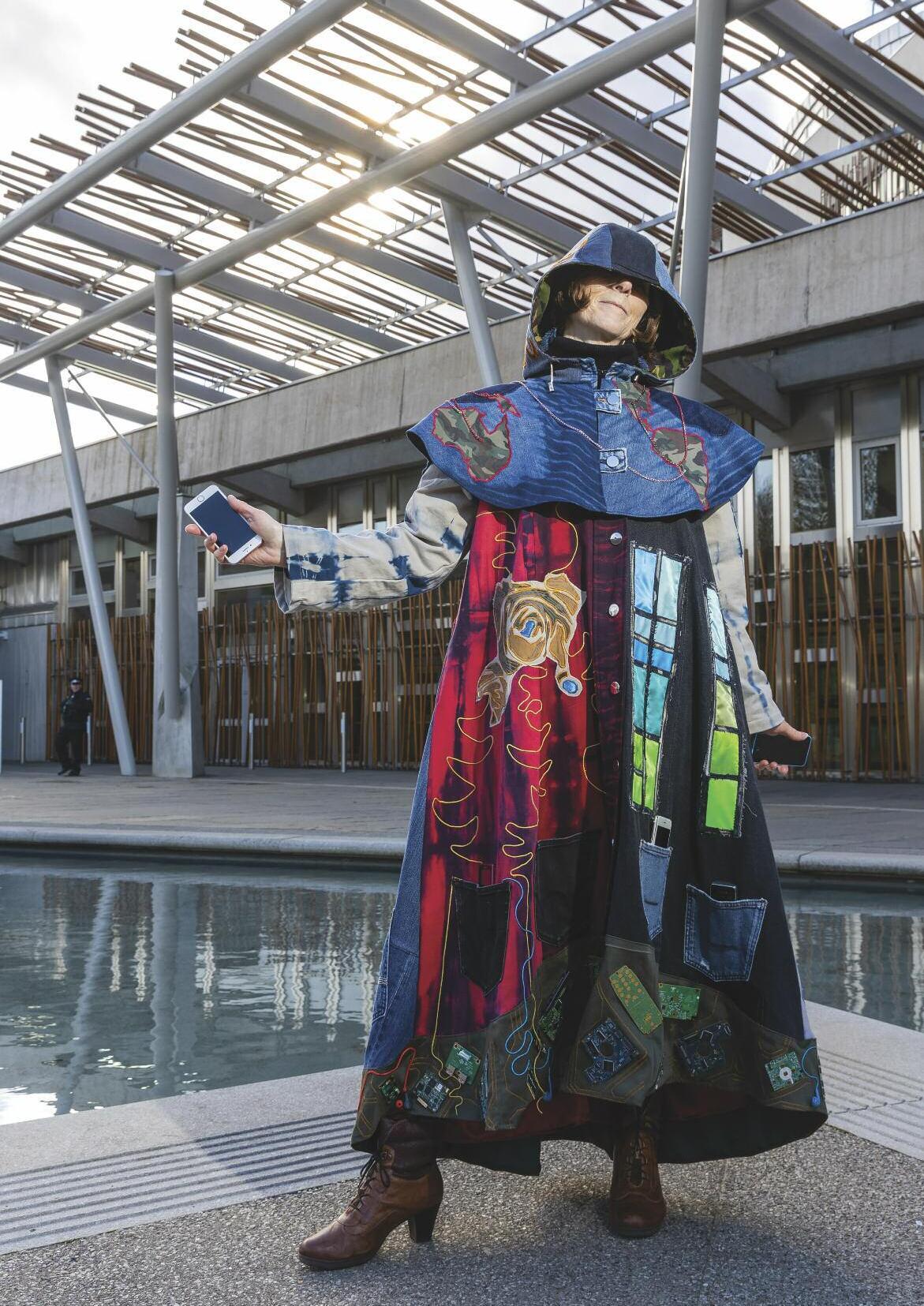

Fashion show shines a light on overconsumption


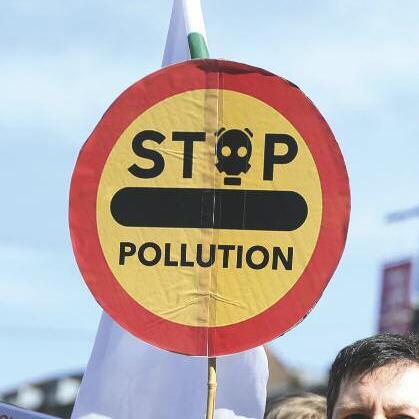
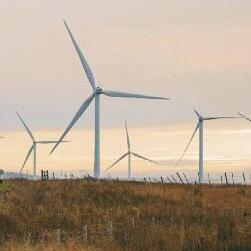
If you would prefer to receive a digital version of What on Earth please contact us: info@foe.scot
It’s the first edition of What on Earth magazine of the year, and time for me to introduce myself. I’m Florence Garabedian and I am the interim CEO at Friends of the Earth Scotland.

At the beginning of the year, Gracie Bradley departed as Director. Gracie worked closely with the staff, board and members throughout 2023 to develop a new organisational strategy. We are grateful for this important work which has helped ensure that Friends of the Earth Scotland has a clear campaigning direction and is in a good place looking to the future.
I’ve been with Friends of the Earth Scotland in the capacity of Chief Operating Officer since July, and will be the interim CEO until a new Director is in post. I am really enjoying these opportunities working with a great team of colleagues!
Meanwhile, everyone has been busy turning our strategy into action.
We hosted a fantastic fashion show of outfits made from old materials outside of the Scottish Parliament, which you can read more about in this issue. It was an incredible show of creativity and brought the issues of waste and overconsumption to the fore.
Also in this issue, you can read about the successful campaign to ban disposable vapes, the potential for publicly owned energy, what it’s like to be on our board and a difficult piece on the destruction of Palestine’s environment.
Thanks so much for your ongoing support as a member of Friends of the Earth Scotland – we couldn’t do anything without you.
In solidarity,

Friends of the Earth Scotland has a clear campaigning direction and is in a good place looking to the future.
All Friends of the Earth Scotland members are warmly invited to our Annual General Meeting on Saturday 8 June 2024.
We’re pleased to be holding the event in person in Glasgow, and it will also be possible to join online, so you can choose which option works best for you.
This event is a chance to meet our board members and team, learn more about our campaigns and build connections with other members.
Friends of the Earth Scotland is a democratic, grassroots organisation and the AGM is an opportunity for members to influence our direction as well as elect members of our board.
Remember that as a member you can put up a motion for debate or even stand for the board – information on how to do this can be found through the link below
The Friends of the Earth Scotland team is looking forward to seeing you!


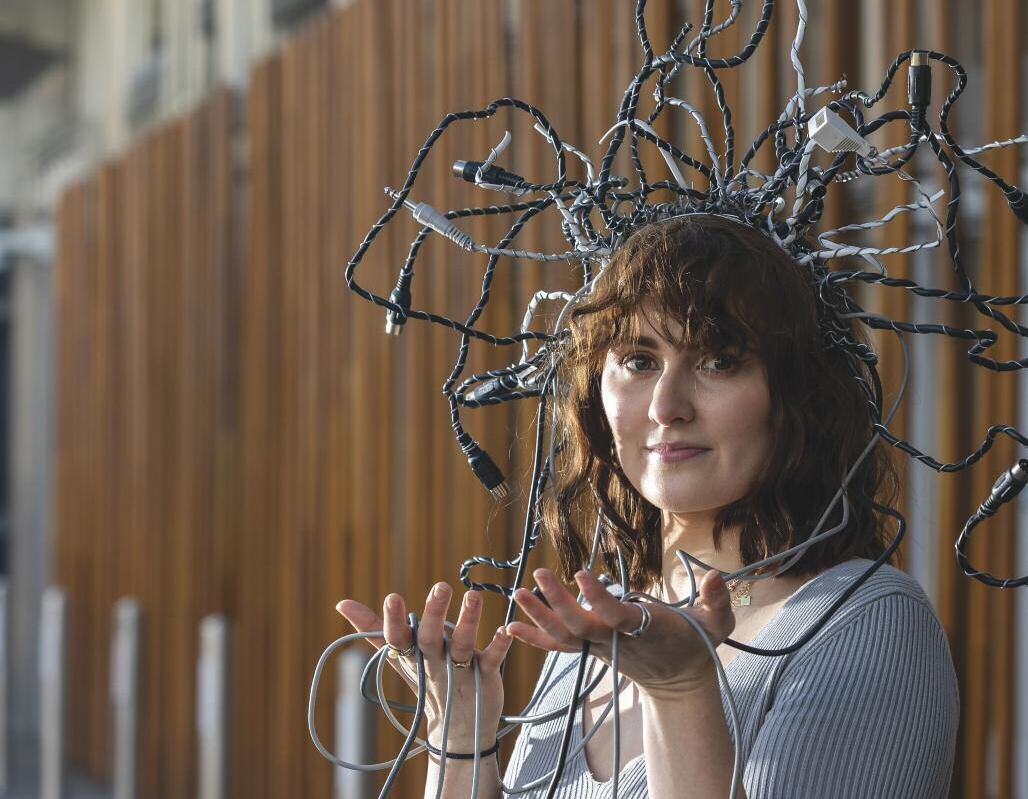
 By Kim Pratt, Circular Economy Campaigner
By Kim Pratt, Circular Economy Campaigner
We worked with reuse and repair organisations from across Scotland to put on a fashion show with outfits made from discarded materials, and it was an incredible event that shone a light on the issues of waste and overconsumption.
We put on the fashion show to call attention to the public demand for a change to the way we use materials, and we held it right outside the doors of the Scottish Parliament so MSPs couldn’t miss it A new law to create a circular economy is currently being developed, so it was an important opportunity to show them that there is public support for measures to reduce our overconsumption
There are lots of organisations working at a grassroots level to change the way we use materials – from repair cafes to tool libraries. But without more support and clear strategies from the government, the level of change required to reduce our impact on the planet just won’t be possible.
We want the Scottish Government to bring in targets to reduce consumption as part of the new circular economy bill This is a vital step in ensuring the necessary changes are made across our economy to bring our material use to a level that’s less destructive.
We want the Scottish Government to bring in targets to reduce consumption as part of the new circular economy law.

Everyone involved in the fashion show highlighted various problems with our culture of overconsumption with their creative outfits. Models took to the catwalk in outfits including a dress made of bike inner tubes to highlight that 65% of our clothing is made from fossil fuel-based plastic, a cape made from plastic bottles collected from beach litter, and an electric cable headdress to highlight the impacts of mining for metals and lack of repair opportunities for electronic waste in Scotland
This fantastic day was just one step in pushing the Scottish Government to go further with its vital circular economy legislation.
There’s a few stages to go before the bill becomes law, which will take place over the coming months. This means that we have more opportunities to push our representatives to go further.

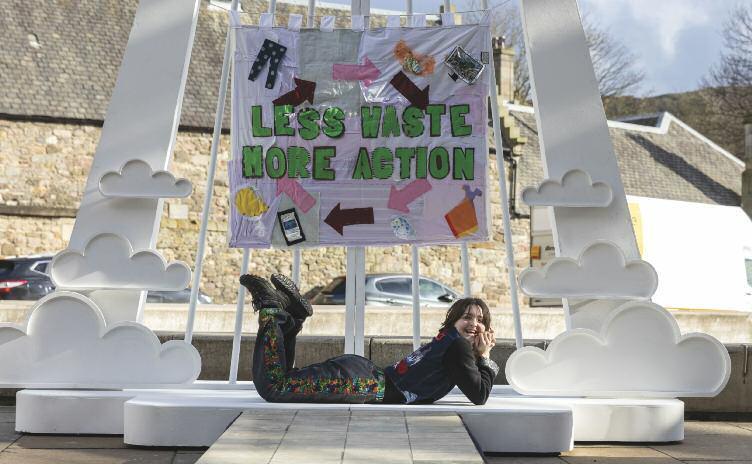
If you haven’t already, sign our pledge to take action for a circular economy and we’ll keep you updated with what’s happening and how you can get involved.
www.foe.scot/pledge
We often talk about the need to achieve our climate targets in a way that is fast and fair. It’s also important that any just transition away from fossil fuels is led by workers and communities. But what does this actually look like?
A crucial part of empowering workers and communities in a just transition is by embedding public ownership and control throughout the process. This goes for the energy sources we move to i e publicly owned renewables, and in terms of who delivers the transition.
A truly just transition cannot be led by the market I’ve set out four reasons why public ownership of renewable energy must be part of Scotland’s just transition.
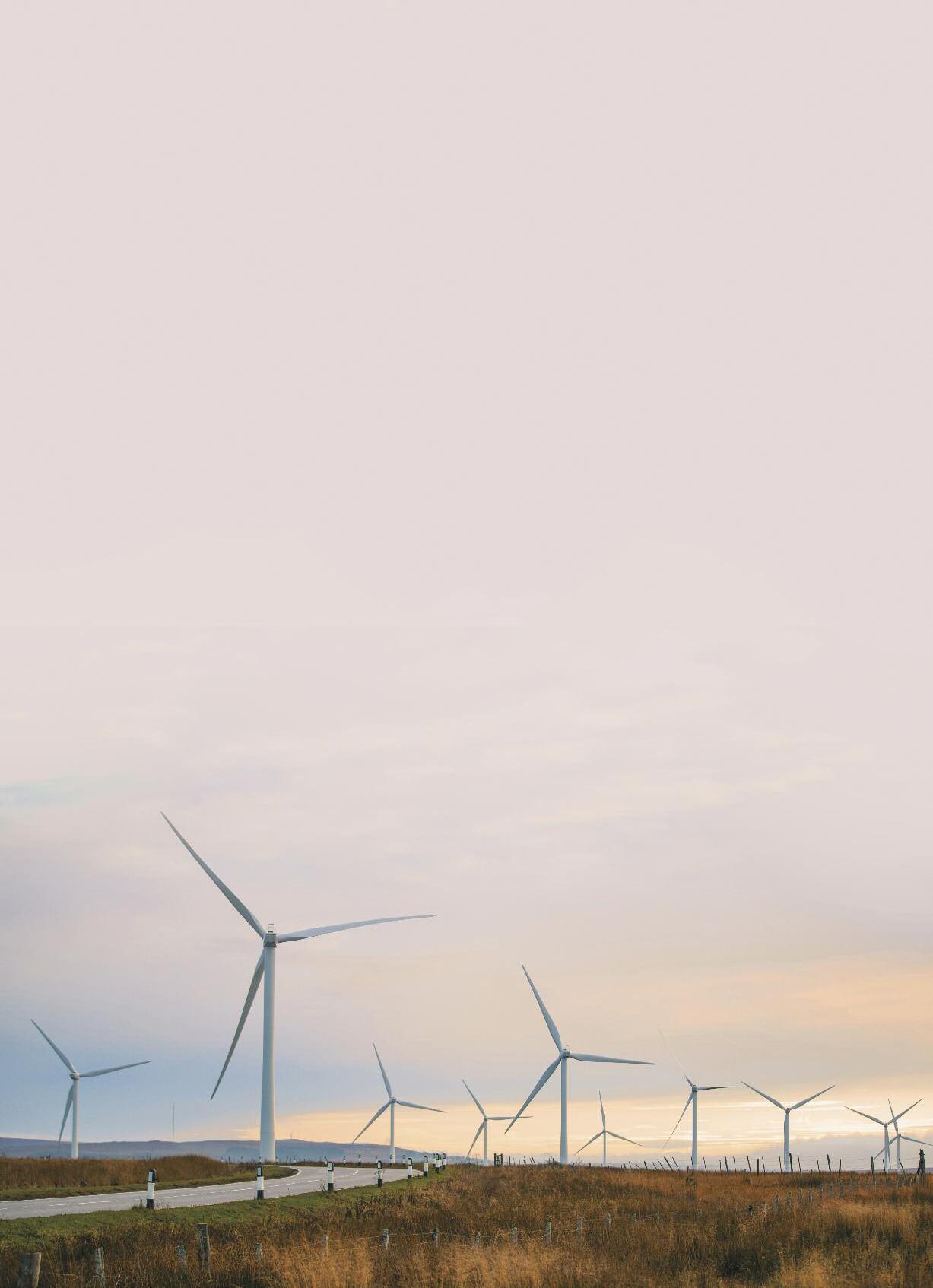
Private ownership is driven by the interests of profit, not the interests of people.
In February 2024, it was announced that British Gas’ profits jumped from £72 million in a year, to £751 million All the while, ordinary people have seen their bills go up amidst a never-ending cost of living crisis These profits go straight into the pockets of wealthy shareholders and fossil fuel companies who have inflamed the climate crisis for everyone else.
If our energy system was rooted in publicly owned renewables, we’d be seeing a very different picture. For one, renewable energy is far cheaper than fossil fuels. Energy derived from sources such as wind and solar power means lower bills for everyone. What’s more, when companies are publicly owned, it’s much more likely that bills stay at that low level – and we won’t see private companies profiting from the energy crisis.
Publicly owned energy can put investment right back into the communities generating it.
A national publicly owned energy company is crucial to a just transition But there are also many examples of locally and community owned energy generation, where the money that is raised from energy bills can go right back into investing into the local area and community. It acts as a direct revenue stream that communities can channel straight into local infrastructure and services – as opposed to private companies paying out those profits to their shareholders.
A key just transition principle is that no community should be left behind Introducing models of genuine local and community ownership means that communities can be at the forefront of the transition – where the costs are minimised, and ordinary people will see the benefits in their everyday lives.
Public ownership and control means we have the tools to plan the system-level change we need.
The task of reducing our climate emissions by way of a just transition is immense. We need to see all areas of government and local institutions working together to produce the investment and coordination at the level required. If crucial services and duties are outsourced out to unreliable private companies, with no accountability, we risk ending up with a fragmented, untransparent process that leaves workers and communities in the dark.
Where each stage of our energy system is publicly owned, the buck stops with the government. If done correctly, they have the necessary oversight of all the different cogs that turn together to achieve the system transformation that we need to tackle the climate crisis. And if they slip up, they’re a democratically elected public body, who can be held to account by the people they serve as representatives.

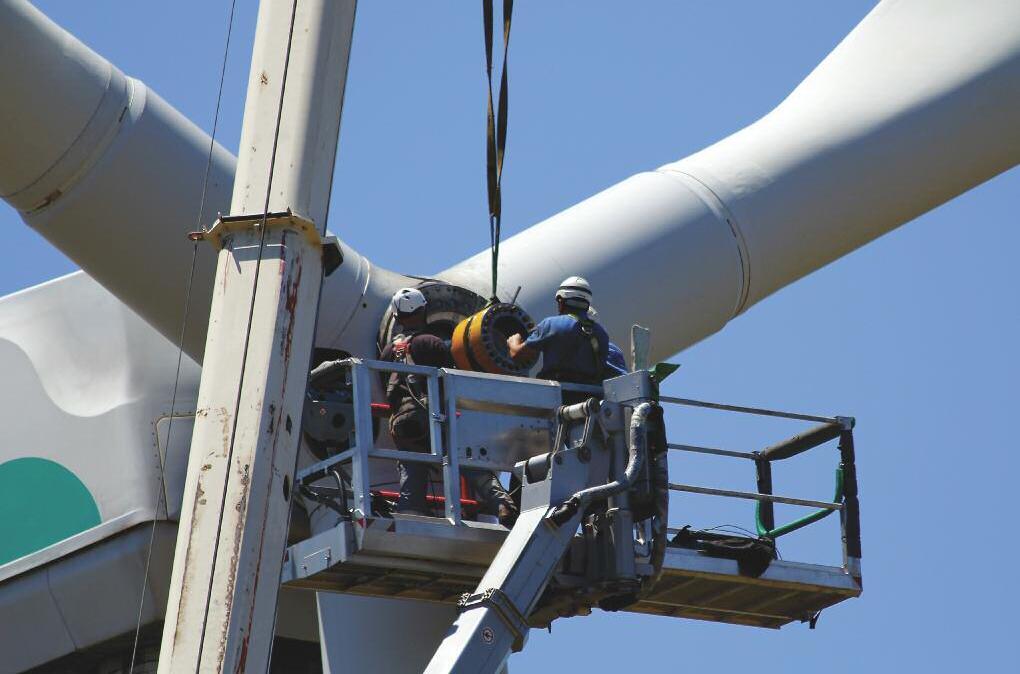
Creating a publicly owned energy system at every level – national, local, and community –based in renewable energy sources, is an unmissable step in tackling the climate crisis
Achieving energy democracy – putting the decision-making power with the people who should have it.
Workers in high-carbon industries are the ones with the expertise and experience to lead the planning and delivery of our move away from fossil fuels. People in the communities that surround these jobs are the ones who know what’s sorely needed in their local area and what will be in the future It’s these people who should be leading the energy transition, not
wealthy bosses in faraway boardrooms who are completely divorced from the lives of workers and communities in Scotland
Creating a publicly owned energy system at every level – national, local, and community –based in renewable energy sources, is an unmissable step in tackling the climate crisis. It means building the solid foundations of not just the just transition process, but the whole new system we need to transform society and have the environmentally just future we deserve.
Laura

Could you start by explaining why single use vapes are an environmental problem?
First and foremost, they are a throw away electronic product, which means they are jam packed full of really precious materials
like lithium, cobalt and copper All of these materials are packed inside a device that’s not easy to take apart, so when they get thrown away we lose all of these materials.
They’re also litter, so they’re being found across parks, roads and beaches When they get broken they leave microplastics and leech out all sorts of toxic chemicals which is damaging for wildlife.
In the UK we throw away about 5 million of them a week!
Find creative and unique ways to engage people and bring people along with you.
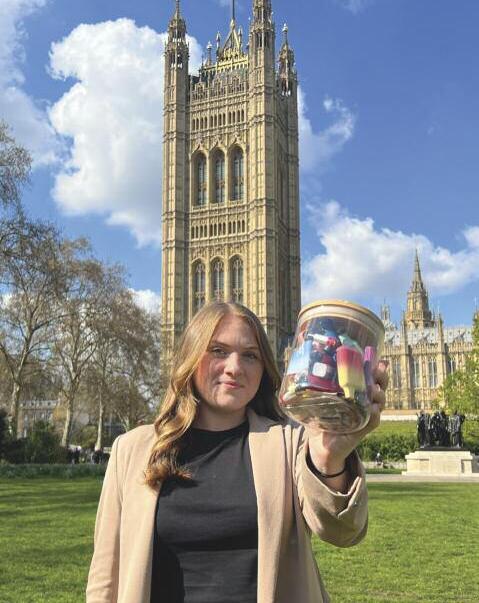
Tell us about your campaign: how did it start? How did you convince so many people and organisations to join you in your call to take action on vapes?
The campaign started because I was out with my dog and picking up all kinds of litter around the local park After I first noticed them I was seeing more and more every day. One day I found one that had been run over so I saw what was actually inside it, so that got me really thinking about how we can reduce the prevalence of them.
I got together with a group of people who I knew in the environmental space to find out if anyone was working on the issue or if they were keen to, and discovered it was being considered as a big issue by many groups but not much work was actually happening yet.
Slowly from there it was built by chatting to people who were interested in the issue from all different angles – waste workers, teachers, councillors, public health experts We realised it was really a ban that was needed because there’s already a reusable option that’s available
You have been such an advocate against vapes in the media you even earned the nickname ‘the vaped crusader’. Do you have anything you would like to say to other campaigners about how to get your voice heard?
One of the biggest things I've realised about campaigning is the power of social media
You can take to your own social media or if you’re part of a group, their social media, and talk about an issue and create your own story. I made these videos of myself picking up litter while out on walks and they got millions of views which then got journalists interested. I’d say to everyone – use the platforms that are available to you because you can drum up the excitement there. Find creative and unique ways to engage people and bring people along with you
Once the buzz had been created, I got to know a couple of journalists who cared about the issue and kept chipping away at it, so I kept in touch with them and let them know about any developments unfolding in case it would make a good story for them.
I don’t think that my way of campaigning is the perfect way, but I’ve learnt so much while doing this that I think I can provide some helpful resources for people and hopefully people can build upon it.
The announcement of a UK ban on single use vapes is one of the biggest circular economy successes in recent years. What do you think made it such a success?
I think one of the reasons it’s been so successful is that it’s been super targeted and very clear from the beginning. We knew we wanted a ban, and we didn’t waver from that.
Another thing is that it was a very holistic and community centred campaign –everybody had their voice included. We had litter pickers, environmental organisations, public health advocates, GPs, parents, school kids, professors, which meant we were able to address so many perspectives. I don’t think it would have worked as well if we just looked at it from one angle.
Of course we don’t have time to review each product in turn. How do you think this success could be built upon to create more systemic change?
I hope the ban on disposable vapes will do two things Firstly from a public health perspective – I hope that it makes us see that the tobacco and nicotine industry is constantly looking to reinvent itself, to find new ways to hook people onto nicotine I hope we can use that to stay one step ahead.
I also hope we can use this as a framework for other disposable electronics as they arise. There should be nothing that has electronic components that is designed to be thrown away This has been the first mainstream one but there are others that exist and will be coming down the line, from electronic fans to digital pregnancy tests. We need to make sure they are regulated in a way that means the companies producing them are responsible for dealing with them and recovering the minerals, but we also need to look at how we can avoid this from becoming commonplace altogether.
Finally, what’s next for you and the campaign? Do you plan to take a well-earned rest or are you looking to the next challenge already?
Although the campaigning part is done, there’s still about a year of building the legislation to get the best legislation possible – so the work is not done! We’re having conversations with different politicians to look at making sure it’s robust and there's no loopholes We still need to look at that wider issue of disposable electronics too, to make sure that the change is happening in a systematic way.
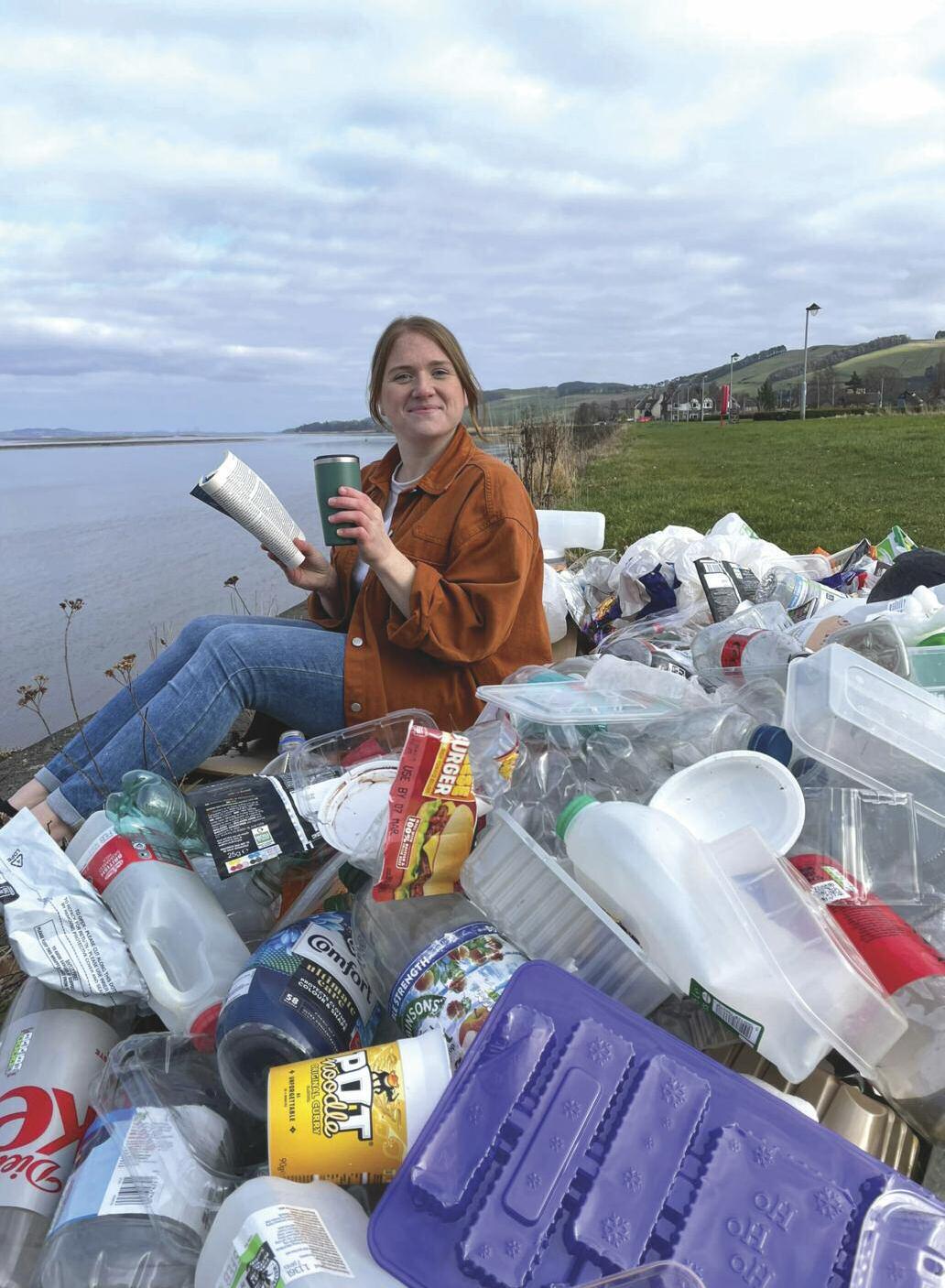
I want to use all of my own experience of this process to help other people with their own campaigns too. I don’t think that my way of campaigning is the perfect way, but I’ve learnt so much while doing this that I think I can provide some helpful resources for people and hopefully people can build upon it.
Also I did all of this in my spare time, so now I need to focus on my PhD!
 By Ric Lander, Corporate Power Campaigner
By Ric Lander, Corporate Power Campaigner
Today, in the Middle East, the lives and health of people in Gaza, Palestine are being systematically obliterated.
The Israeli military have bombed hospitals, homes, refugee centres, schools, and places of worship The destruction of Palestine’s environment is also being used as a tool of war and is causing yet more severe harm to people in Gaza.
Gaza’s sewage works shut down in October and since that time, effluent has flowed directly into the Mediterranean Sea. Bombing has further damaged sewers and wells, causing waste to mix with water sources and flow on streets, enabling the spread of water-borne diseases such as cholera.
Israeli policy has left Palestinians short of drinking water for decades. Before the conflict the average resident of Israel consumed four times the water that residents of Palestine did, a disparity Amnesty International describes as “truly staggering”. But water supplies to Gaza have been reduced so much that the UN now reports that people in Gaza do not have enough water to live
Most cultivated fields have been destroyed by military action in Gaza and bakeries, factories and food warehouses have been bombed or shut down due to lack of basic supplies, fuel and electricity. Residents have long since exhausted stockpiles and water. As a result, almost the entire population of the strip is suffering from acute food insecurity or famine
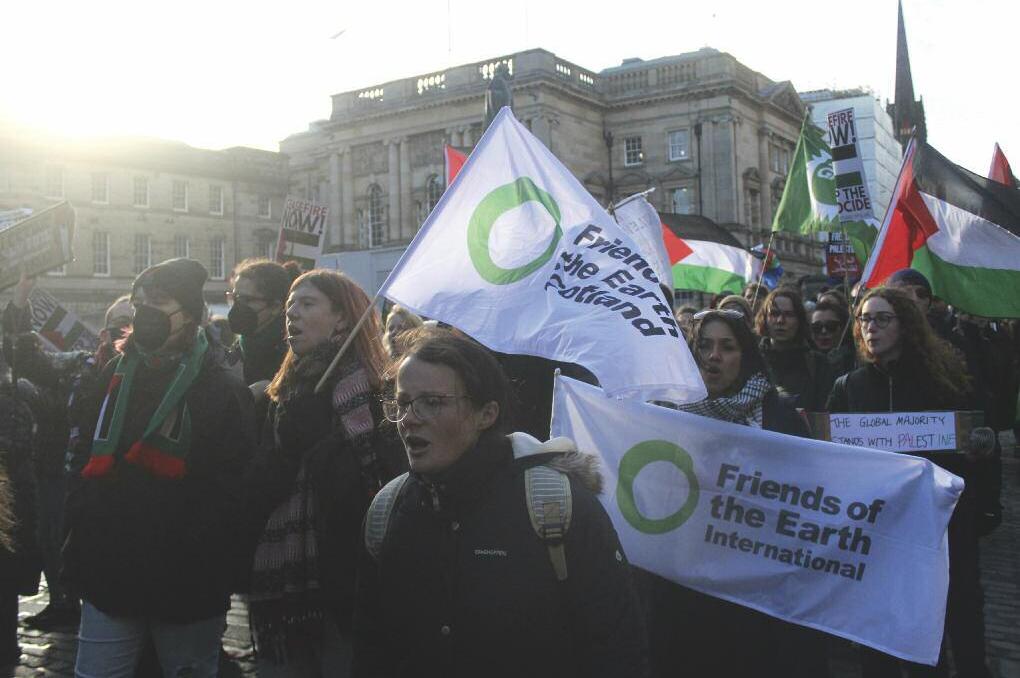
The destruction of Palestine’s environment is also being used as a tool of war
The weapons used by the Israeli military have introduced toxic chemicals into Gaza’s earth, air and ground water Israel’s use of white phosphorous, as reported by Human Rights Watch, has a number of frightening effects including creating acid rain which, with other water sources so lacking, residents are forced to drink as rainwater
This military action has also created a surge in climate emissions: the first two months of Israel’s bombing campaign and invasion saw 281,000 tonnes of carbon dioxide released Prior to October up to 60% of Gaza’s electricity came from roof-top solar power, now many solar panels litter bomb sites.
For many decades, the military occupation of Palestine has provided cover for the dumping of toxic waste and polluting industries, with polluters exploiting the lack of regulation in occupied territories with no Palestinian control. A 2012 Friends of the Earth fact-finding mission found 11 chemical factories operating without basic regulation or worker rights, in Palestine but behind the partition wall, and the dumping of effluent and toxic waste on Palestinian land. As an organisation, we are striving for a world where everyone enjoys a healthy environment and a fair share of the Earth’s resources, including Palestinians

Friends of the Earth is a global network of environmental organisations, and so we are standing in solidarity with our sibling organisation Friends of the Earth Palestine (PENGON), a network of 15 environmental organizations in Gaza and the West Bank
Since October, Israeli air strikes have damaged every one of PENGON offices in Gaza and totally destroyed most of their staff ’s homes. Islam Ali, one of their staff team, was killed by an Israeli air strike in October: she was sheltering in southern Gaza having already been displaced from her home at the Al-Shati Refugee Camp. A further four PENGON staff in Gaza have since been killed by bombing.
In the West Bank, PENGON staff have faced heightened intimidation from Israeli settlers and soldiers Increased military roadblocks have divided communities and made travel to work, including sites affected by conflict, more arduous and dangerous.
The work of environmental organisations like PENGON is critical right now because this is a war over land and resources – a war over the environment – and the impacts on Palestine’s environment have been devastating
We demand a change of course, an immediate ceasefire, the release of both hostages and political prisoners, the opening of borders, and an end to military occupation and apartheid; for a just peace that recognises the rights and human dignity of all those who live in Israel and Palestine.
In Scotland, we can put pressure on UK and Scottish leaders to push Israel to change course We can support the boycott, divest and sanctions campaign and we can work within our unions to stop the manufacture of weapons for Israel
We will continue to join demonstrations, and we encourage all our friends and supporters to do the same, and to offer your solidarity to the people of Palestine however you can.
The movement for a just transition to a renewable powered and zero-fossil-fuel Scotland has been pushing for change for decades, yet progress remains inadequate and painfully slow.
It can seem as if every time a democratic movement calls for climate action, it is forcibly opposed by a powerful lobbying operation run by the fossil fuel industry
Fossil fuel companies benefit from the lack of progress and remain a hugely powerful obstacle to action on the climate crisis In 2022, North Sea oil companies BP, Shell and Equinor made $143 billion in profit and every major oil company remains fully committed to exploring for new sources of fossil fuel.
At a UK level, the fossil fuel industry has aggressively protected its interests by donating millions to UK political parties, entertaining Westminster MPs, running parliamentary bodies and trying to greenwash its image with major sports and cultural sponsorships. A recent report found that all this fossil fuel lobbying is working, having watered down the oil and gas ‘windfall tax’ by pressuring the UK Government
We wanted to find out how the fossil fuel lobby was infiltrating the Scottish Parliament. Our new investigation “Polluted Politics: The fossil fuel lobby at Holyrood” is one of the largest reviews of corporate lobbying ever undertaken in Scotland.
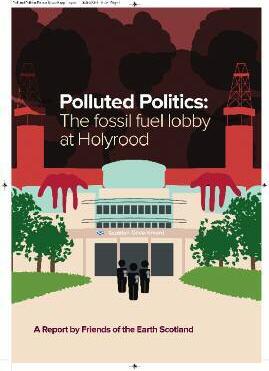

Going back through the records starting in 2018 we found 790 meetings between the fossil fuel industry and MSPs. During an average working week at the Scottish Parliament, fossil fuel companies were meeting over six MSPs, well above one every working day
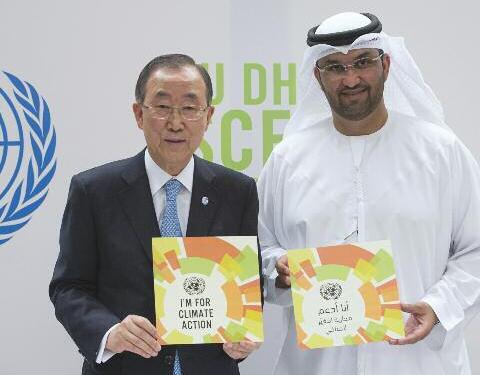
Former UN Secretary-General Ban Ki-moon with Sultan Ahmed Al Jaber, head of the Abu Dhabi National Oil Company A BBC investigation found Al Jaber was using his position as President of COP28 to lobby for oil and gas interests (Photo: UN)
Fossil fuel companies benefit from the lack of progress and remain a hugely powerful obstacle to action on the climate crisis
Michael Matheson, cabinet secretary since 2014, including for Net Zero, Energy and Transport from 2018– 23 marked 78 engagements, almost 10% of all recorded lobbying. Gillian Martin, Minister for Energy and Environment, has met the fossil fuel industry once a fortnight since being appointed in March 2023. Conservative MSP Liam Kerr was the most lobbied opposition or backbench MSP followed by Alexander Burnett, Conservative, and Lewis MacDonald, Labour
Fossil fuel companies BP, Shell, SSE and Centrica had the most meetings, successfully pursuing MSPs nearly 400 times Lobby group Offshore Energies UK, previously known as Oil & Gas UK until 2022, had 103 meetings.
The two busiest months for recorded lobbying were November 2021, coinciding with the UN COP26 summit taking place in Glasgow, and May 2023, shortly after Humza Yousaf became First Minister.
At COP26, the UK Government resisted pressure from oil companies by refusing to offer them conference sponsorship opportunities, and new rules have since made oil lobbyists at the UN more visible The Welsh Parliament’s fossil free policy seeks to end conflicts of interest by divesting parliamentarians’ pensions from fossil fuels by 2025.
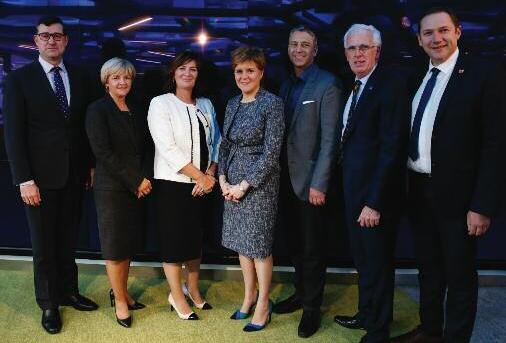
Based on UN guidelines, the UK Government has rules designed to exclude tobacco companies from influencing health policy: government representatives cannot attend tobacco industry events, meetings minutes must be published, and tobacco companies are barred from funding public programmes. The Scottish Government could adopt a similar approach to protect climate policy-making from the powerful and pernicious influence of fossil fuel lobbying.
The Scottish Government, MSPs and Scottish MPs should also support measures to end fossil fuel funding of UK political parties, exclude the fossil fuel industry from UN climate negotiations, and advance non-proliferation of fossil fuels globally
A just transition to a safe climate future can only be achieved if we end the pollution of our politics by fossil fuel companies.
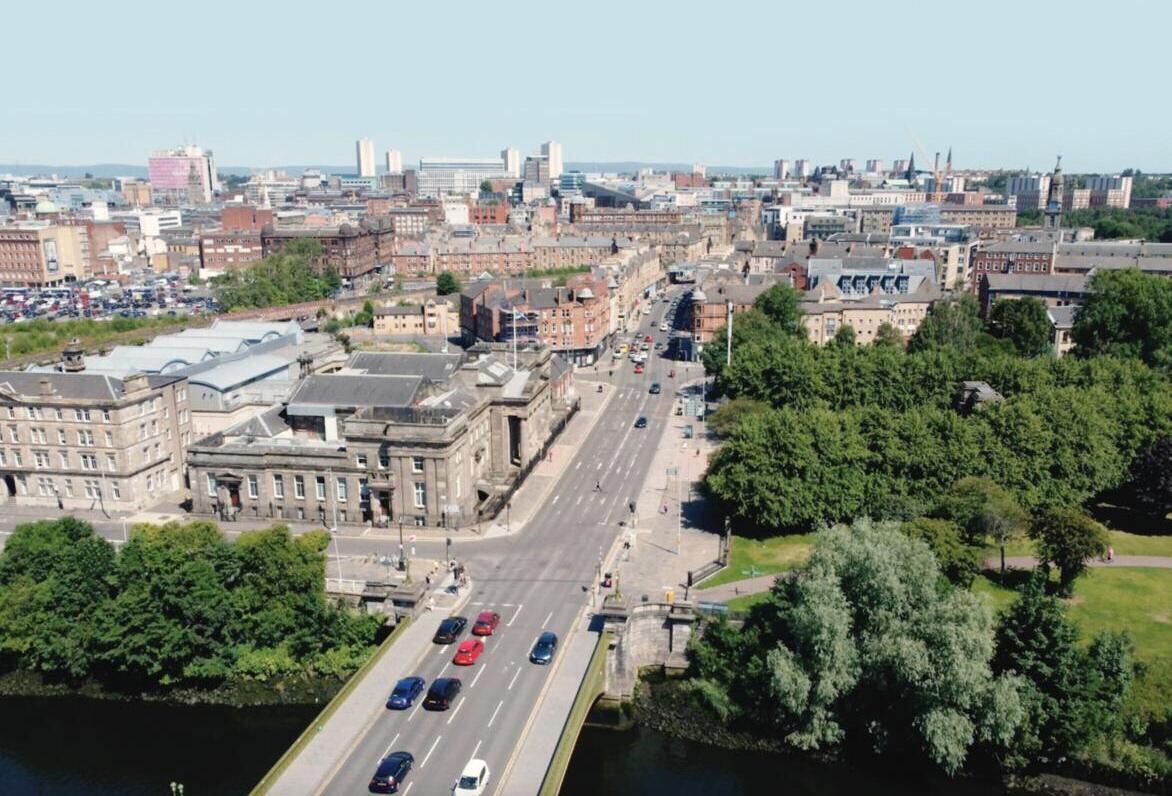
It is well-established that air pollution damages our hearts and lungs causing various respiratory issues and affecting people with cardiovascular diseases. There is also growing evidence that links air pollution to dementia, type 2 diabetes, and poor mental health.
One of the most vulnerable groups to the harmful effects of air pollution is individuals with pre-existing respiratory conditions, such as asthma and chronic obstructive pulmonary disease (COPD) Respiratory disease affects 1 in 5 people in the UK and in Scotland over 368,000 people are estimated to have an asthma diagnosis For these individuals, exposure to polluted air can aggravate their symptoms and lead to more frequent and severe respiratory attacks.

The impact on children can be particularly harmful as their developing lungs are more susceptible to damage caused by pollutants resulting in stunted growth of lungs. Moreover, research has shown that air pollution can cause new cases of childhood asthma.
In our 2023 Life with a Lung Condition annual survey of 14,550 people with lung conditions across the UK, 51% of respondents based in Scotland reported that air pollution triggers their lung condition
The causes of air pollution are complex with numerous sources, but one of the most common culprits is transport emissions.
Studies have already found large falls in the number of asthma exacerbations during the 2020 lockdowns This included a 36% reduction in admissions for asthma in Wales and Scotland, but a recent Oxford study is the first UK-based analysis to include air pollution directly It showed that emergency hospital admissions for asthma dropped by 41% in 2020 as air pollution from traffic fell due to Covid restrictions.
In the fight against air pollution, Low Emission Zones (LEZs) have emerged as a powerful tool to help reduce emissions and improve air quality in urban areas.
LEZs have worked to reduce air pollution in London and in cities across Europe and were introduced in four of Scotland’s cities in May 2022 – Aberdeen, Dundee, Edinburgh, and Glasgow, setting an environmental limit on certain city roads, restricting access for the most polluting vehicles to improve air quality.
To help achieve cleaner air and safeguard people’s respiratory health, it is vital to support the implementation and enforcement of Low Emission Zones. While individual actions, such as reducing personal vehicle use and supporting green initiatives, can make a difference, collective efforts at local community and national levels are essential.
We believe that by advocating for the implementation and expansion of Scotland’s LEZs, we can combat air pollution, and work towards a cleaner, greener, healthier future. Together, we can clear the air and protect people’s health
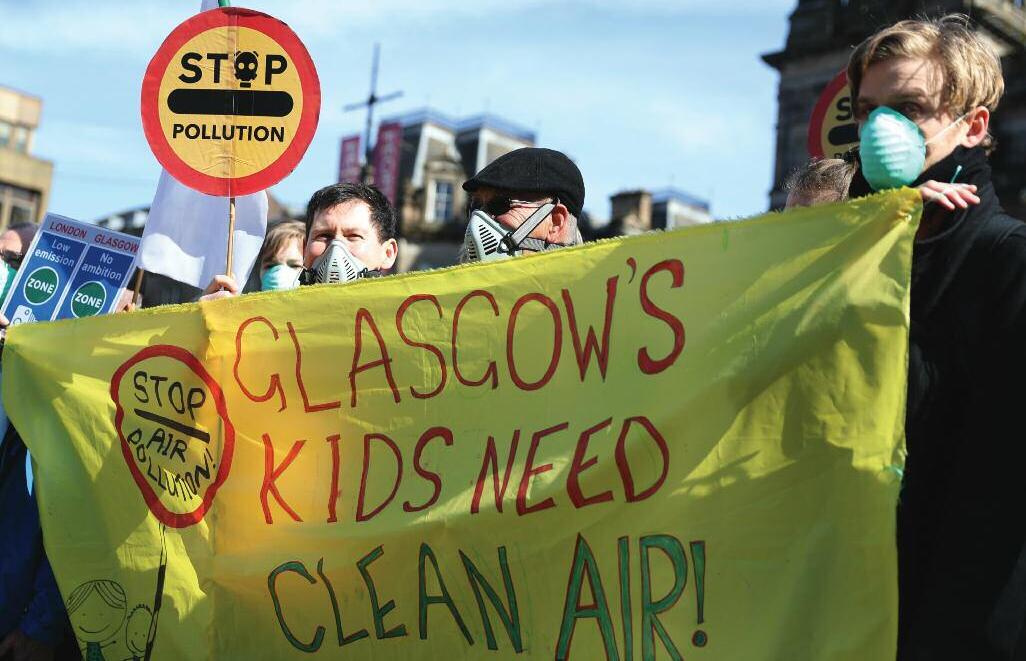

Ery McPartland joined the Friends of the Earth Scotland board at the AGM last year. They joined Young Friends of the Earth Scotland in 2019 where they spent a year on the steering group. They've also been involved in People and Planet Edinburgh and recently started a PhD in physics.
Why did you decide to join the board of Friends of the Earth Scotland?
I’d been a member of Young Friends of the Earth Scotland for a few years –it was an amazing place to be while I was in Scotland and I learnt so much there. I was interested in seeing how the larger Friends of the Earth Scotland organisation worked – especially to see the intersection point of the two groups During my time at YFoES I started working more on disability justice and I wanted to see what work was happening on that in FoES.
What have your first six months been like?
The first six months have been a steep learning curve but very rewarding. It was a really interesting time to join the board as we had just got a new director, Gracie, who was leading us through the process of creating a new strategy I really enjoyed working with Gracie and it was very exciting seeing this new strategy that really met with what I saw as the best parts of the organisation.
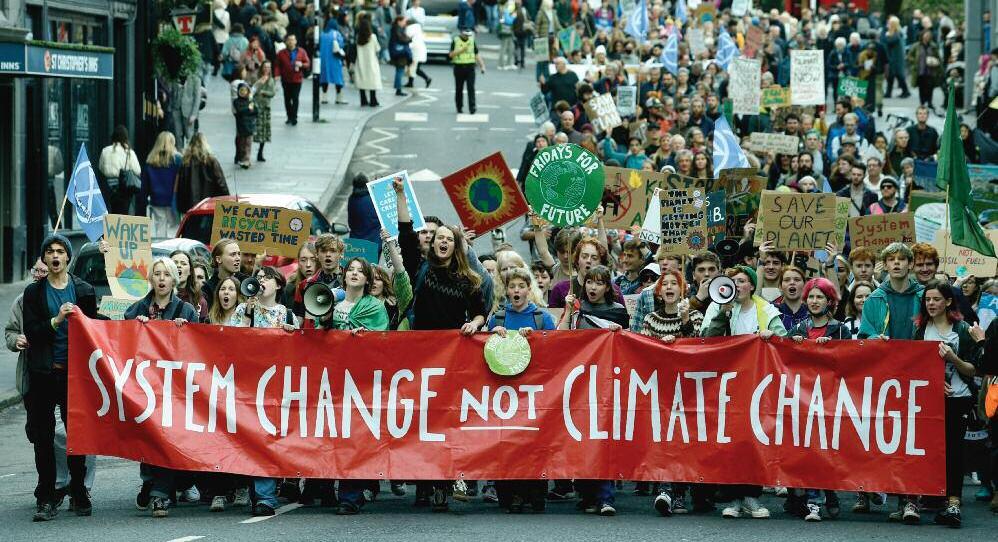
I’ve learnt so much since joining the board from seeing how a strategy is put together to getting an intro to charity finance work. It was really interesting reading through the new staff handbook and I learnt a lot from that about how charities are run and the work Friends of the Earth Scotland is doing to become a more inclusive employer.
For me, the main role of the board is oversight and support. We know the work the staff team does is incredible and we are lucky that we get to see what’s going on We review finances and approve some high-level decisions (like on the strategy). We are starting to look at creating some subcommittees to work more closely with staff on key areas that would be useful, for example, membership We will also be supporting with the recruitment of a new director.
A typical board meeting is up to about three hours. We agree the minutes of the previous meeting and go through all the papers. Some of the papers are just to keep us in the loop and others we have to make decisions on We begin and end the meeting with closed discussion between the board and the director which is a good place for us all to gather our thoughts.
We know the work the staff team does is incredible and we are lucky that we get to see what’s going on.
What support were you given to make sure you could participate fully?
I was given the opportunity to go on some finance training which really improved my confidence We’ve also all been given training on the role of the board. I joined at the same time as Rona and the previous director, Gracie, gave us an induction which was really helpful.
What kind of skills are valued on a board?
I think a really wide range of skills are valued on the board. We have members on the board who have been campaigning for decades or have been on many boards before. People who have experience with strategic planning or others who are knowledgeable about fundraising or recruitment. I was worried when I joined the board that I wouldn’t have much to bring as I’ve only been doing activism for a few years. I found though, that my confidence with spreadsheets and attention to detail has been very valued – as well as my knowledge about Young Friends of the Earth Scotland.
What do you enjoy about being on the board?
I really enjoyed all the strategy work –it was a really great insight into how strategies are developed and it was so exciting seeing that alignment between my values and the ones set out in the strategy.

The board is a friendly and welcoming group, and plays a key role in governing Friends of the Earth Scotland and representing the views of our members. If you feel you have the knowledge and skills to contribute, please get in touch by emailing info@foe.scot. We're especially interested in hearing from people from backgrounds underrepresented in the climate movement, and can provide support and training to anyone without previous board experience.


